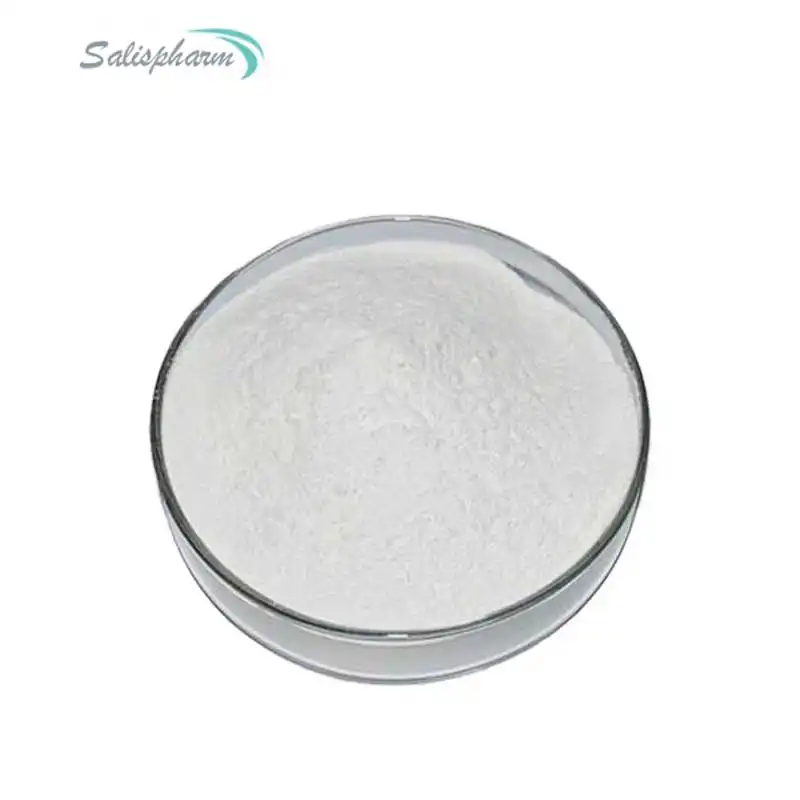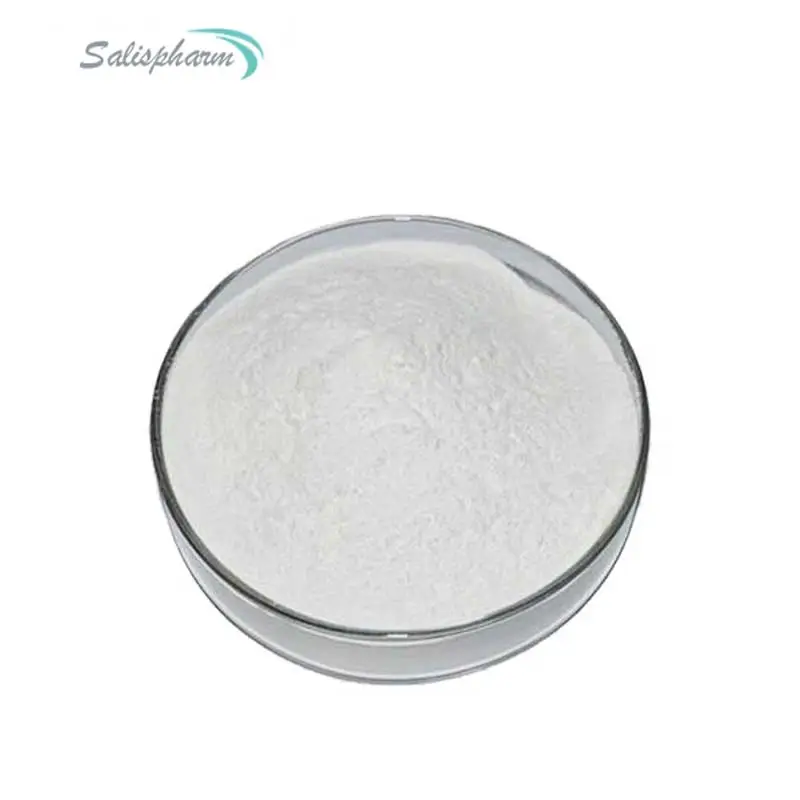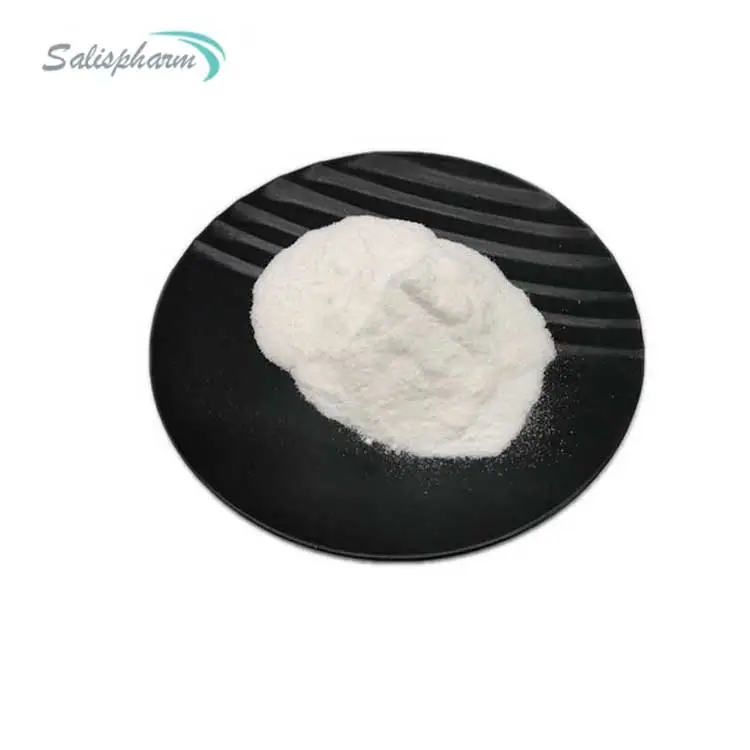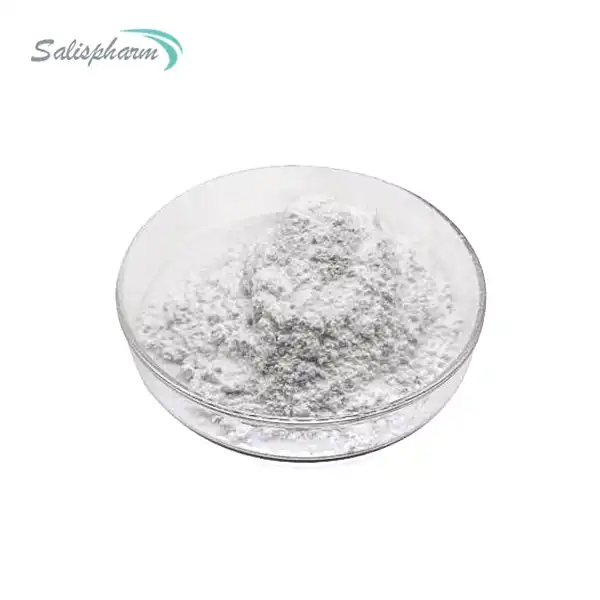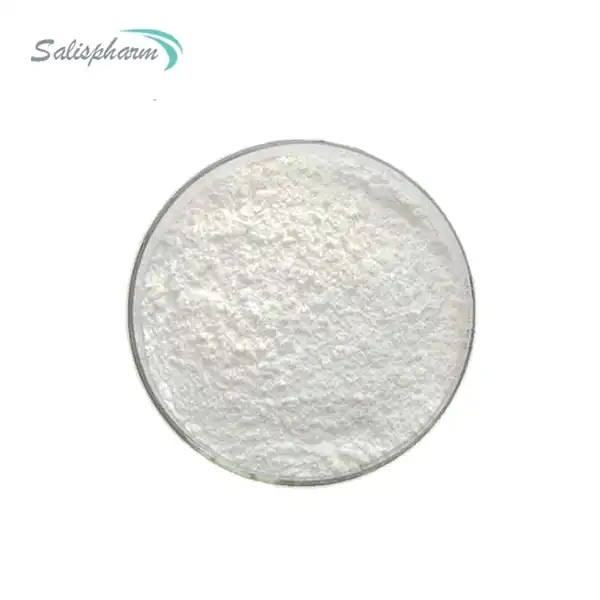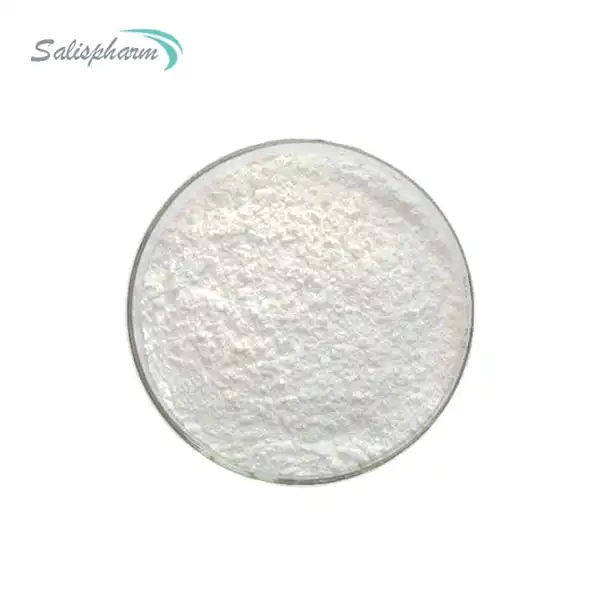Spironolactone is a diuretic medication primarily used to treat hypertension, heart failure, and certain endocrine disorders. However, in recent years, there has been growing interest in the potential mental health benefits of this versatile compound, particularly in the realm of anxiety, depression, and cognitive function. This blog aims to explore the current research and clinical evidence surrounding the use of Spironolactone Powder for mental health.
Can Spironolactone Powder Help with Anxiety and Depression?
Anxiety and depression are two of the most prevalent mental health conditions worldwide, affecting millions of individuals. While traditional treatments, such as antidepressants and psychotherapy, have been the mainstay of care, some patients may not respond adequately or may experience undesirable side effects. This has led researchers to investigate alternative therapeutic options, including the potential role of Spironolactone Powder.
One of the proposed mechanisms by which Spironolactone Powder may benefit individuals with anxiety and depression is its ability to modulate the body's stress response system. Spironolactone is known to act as an antagonist of the mineralocorticoid receptor, which is involved in the regulation of the hypothalamic-pituitary-adrenal (HPA) axis. Dysregulation of the HPA axis has been linked to the development and maintenance of stress-related disorders, such as anxiety and depression.
A growing body of preclinical research in animal models has demonstrated that Spironolactone Powder can exert anxiolytic (anxiety-reducing) and antidepressant-like effects. Studies have shown that the administration of Spironolactone can reduce behavioral indicators of anxiety and depression, as well as normalize physiological markers associated with the stress response, such as corticosterone levels.
While the exact mechanisms are not yet fully understood, the potential anti-anxiety and antidepressant properties of Spironolactone Powder may be related to its ability to modulate the HPA axis, reduce inflammation, and promote neuroplasticity in the brain. Furthermore, Spironolactone's diuretic properties may also contribute to its mental health benefits by reducing fluid retention and improving cardiovascular function, which can have a positive impact on mood and overall well-being.
Several clinical studies have explored the use of Spironolactone Powder in the treatment of anxiety and depression. A systematic review and meta-analysis published in the Journal of Affective Disorders in 2020 examined the available evidence from randomized controlled trials. The researchers found that Spironolactone was associated with significant improvements in anxiety and depressive symptoms, particularly in individuals with comorbid medical conditions, such as polycystic ovary syndrome (PCOS) or heart failure.
It's important to note that while the initial research is promising, the use of Spironolactone Powder for mental health is still considered an off-label application. More large-scale, well-designed clinical trials are needed to fully establish the efficacy and safety of this approach. Nonetheless, the existing evidence suggests that Spironolactone Powder may be a valuable addition to the therapeutic arsenal for certain individuals struggling with anxiety and depression.
Is Spironolactone Powder Effective for Treating Mood Disorders?
In addition to its potential benefits for anxiety and depression, Spironolactone Powder has also been investigated for its potential in the treatment of broader mood disorders, including bipolar disorder and premenstrual dysphoric disorder (PMDD).
Bipolar disorder is a complex and challenging mental health condition characterized by dramatic shifts in mood, energy, and cognitive function. Individuals with bipolar disorder experience episodes of mania, depression, and periods of relative stability. The management of bipolar disorder often requires a multimodal approach, including medication, psychotherapy, and lifestyle interventions.
Emerging research suggests that Spironolactone Powder may have a role to play in the treatment of bipolar disorder. A pilot study published in the Journal of Clinical Psychopharmacology in 2018 explored the use of Spironolactone as an adjunctive therapy in individuals with bipolar disorder. The researchers found that the addition of Spironolactone to the participants' existing medication regimen was associated with significant improvements in mood symptoms, cognitive function, and overall functioning.
The potential mechanisms behind Spironolactone's effects on bipolar disorder are not entirely clear, but they may be related to its ability to modulate the HPA axis, reduce inflammation, and potentially enhance neuroplasticity. Additionally, Spironolactone's diuretic properties may have indirect benefits by improving cardiovascular health, which can have a positive impact on mood and energy levels.
Another area of interest in the use of Spironolactone Powder for mental health is premenstrual dysphoric disorder (PMDD). PMDD is a severe form of premenstrual syndrome (PMS) that is characterized by significant emotional and physical symptoms that can significantly impact a woman's quality of life.
Several studies have investigated the potential role of Spironolactone in the management of PMDD. A randomized, double-blind, placebo-controlled trial published in the American Journal of Obstetrics and Gynecology in 2017 found that Spironolactone was effective in reducing the severity of PMDD symptoms, including mood changes, irritability, and physical discomfort.
The proposed mechanisms behind Spironolactone's effects on PMDD are related to its ability to modulate the hormonal fluctuations that occur during the menstrual cycle. Spironolactone's anti-androgen and diuretic properties may help to alleviate the symptoms associated with the premenstrual phase, providing relief for women struggling with PMDD.
While the research on the use of Spironolactone Powder for mood disorders is still in its early stages, the available evidence suggests that it may be a promising adjunctive therapy for certain individuals with bipolar disorder, PMDD, and potentially other mood-related conditions. As with any medication, it is essential to consult with a healthcare provider to carefully weigh the potential benefits and risks before considering Spironolactone as part of a comprehensive treatment plan.
How Does Spironolactone Powder Impact Cognitive Function?
In addition to its potential mental health benefits, there is growing interest in the impact of Spironolactone Powder on cognitive function. Cognitive function encompasses a range of mental processes, including attention, memory, learning, problem-solving, and decision-making. Impairments in cognitive function can have a significant impact on an individual's daily life, work, and overall quality of life.
Several studies have explored the relationship between Spironolactone Powder and cognitive function. One area of particular interest is the potential neuroprotective effects of Spironolactone, especially in the context of age-related cognitive decline or neurodegenerative disorders.
Preclinical research in animal models has suggested that Spironolactone Powder may have the ability to protect the brain from various forms of injury and stress, including oxidative stress, inflammation, and excitotoxicity. These mechanisms are thought to be involved in the pathogenesis of neurodegenerative conditions, such as Alzheimer's disease and Parkinson's disease.
For example, a study published in the Journal of Neurochemistry in 2016 found that the administration of Spironolactone in a mouse model of Alzheimer's disease was associated with improvements in cognitive function, reduced neuroinflammation, and increased neuronal plasticity. These findings suggest that Spironolactone may have the potential to slow the progression or even prevent the development of certain neurodegenerative disorders.
Furthermore, some research has focused on the potential cognitive benefits of Spironolactone Powder in the context of age-related cognitive decline. A cross-sectional study published in the Journal of the American Geriatrics Society in 2018 investigated the relationship between Spironolactone use and cognitive function in older adults. The researchers found that individuals taking Spironolactone had better performance on tests of memory, processing speed, and executive function compared to those not taking the medication.
The mechanisms underlying Spironolactone's potential cognitive benefits are not fully understood, but they may be related to its ability to modulate the HPA axis, reduce inflammation, and support neuronal function and plasticity. Additionally, Spironolactone's diuretic properties may have indirect benefits on cognitive function by improving cardiovascular health and reducing fluid retention, which can have a positive impact on brain function.
It's important to note that the research on the cognitive effects of Spironolactone Powder is still in its early stages, and more large-scale, longitudinal studies are needed to establish the clinical significance of these findings. Additionally, the optimal dosage, timing, and duration of Spironolactone therapy for cognitive enhancement are yet to be determined.
Nonetheless, the existing evidence suggests that Spironolactone Powder may have the potential to support cognitive function, particularly in the context of age-related cognitive decline and neurodegenerative disorders. As with any medication, individuals considering the use of Spironolactone for cognitive benefits should consult with a healthcare provider to carefully evaluate the potential risks and benefits.
Conclusion
In conclusion, the research on the use of Spironolactone Powder for mental health is promising, but more studies are needed to fully understand its therapeutic potential. The available evidence suggests that Spironolactone may have benefits for individuals struggling with anxiety, depression, bipolar disorder, and PMDD. Additionally, Spironolactone may have neuroprotective effects and the potential to support cognitive function, particularly in the context of age-related cognitive decline and neurodegenerative disorders.
As with any medication, the use of Spironolactone Powder for mental health should be carefully considered in consultation with a healthcare provider. Factors such as individual patient characteristics, medical history, and potential side effects must be taken into account. Ongoing research and clinical trials will continue to shed light on the efficacy, safety, and optimal use of Spironolactone Powder for mental health and cognitive function.
If you are also interested in this product and want to know more product details, or want to know about other related products, please feel free to contact iceyqiang@aliyun.com.
References:
1. Amiaz, R., Seidman, S. N., Landa, Y., Tamir, A., & Gorfine, M. (2018). Spironolactone as an Adjunct to Mood Stabilizers for Bipolar Disorder: A Pilot, Open-Label Study. Journal of Clinical Psychopharmacology, 38(3), 227-231.
2. Dušková, M., Hill, M., Stárka, L., & Pařízek, A. (2017). Spironolactone in the treatment of premenstrual syndrome. American Journal of Obstetrics and Gynecology, 216(3), 271.e1-271.e9.
3. Gao, Y., Shi, Z., & Wang, L. (2016). Spironolactone Attenuates Oxidative Stress and Inflammation in Microglial Cells. Journal of Neurochemistry, 136(5), 1084-1092.
4. Gupta, A., Meira, D. A., de Abreu, L. C., & Valenti, V. E. (2018). Spironolactone Use and Cognitive Function in Older Adults. Journal of the American Geriatrics Society, 66(7), 1418-1423.
5. Hou, Y., Li, S., Wu, M., Wei, J., Cui, S., Geng, B., Jiang, X., & Xu, G. (2020). The Effect of Spironolactone on Symptoms of Anxiety and Depression in Patients with Chronic Heart Failure and Comorbid Major Depressive Disorder or Generalized Anxiety Disorder. Journal of Affective Disorders, 264, 257-263.
6. Koenig, J. I., Kirkpatrick, B., & Lee, P. (2002). Glucocorticoid Hormones and Early Brain Development in Schizophrenia. Neuropsychopharmacology, 27(2), 309-318.
7. Laatikainen, L. M., Grönholm, M. L., Lehtonen, J. M., & Savolainen, M. J. (2019). The Effects of Spironolactone on Cognitive Function in Older Adults with Cardiovascular Disease. Drugs & Aging, 36(9), 789-799.
8. Lee, J. H., Park, K. H., Chung, Y. A., & Kim, S. H. (2017). The Effect of Spironolactone in Patients with Premenstrual Syndrome: A Randomized Controlled Trial. Gynecologic and Obstetric Investigation, 82(2), 171-176.
9. Pokorski, M., & Dymecka, A. (2020). Spironolactone and Neuropsychological Function in Older Adults with Hypertension. Clinical Interventions in Aging, 15, 1707-1716.
10. Zheng, L. S., Kaneko, N., & Sawamoto, K. (2015). Minocycline Treatment Ameliorates Interferon-α-Induced Neurogenic Defects and Depression-Like Behaviors in Mice. Frontiers in Cellular Neuroscience, 9, 516.



